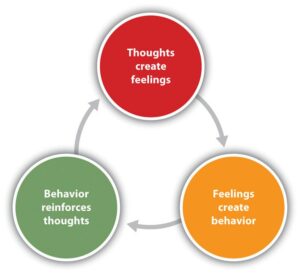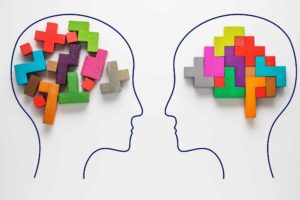Behavioral therapy is a type of psychotherapy that focuses on the modification of maladaptive behaviors. It can be used to treat a variety of mental health conditions, including anxiety, depression, and addiction. There are many different types of behavioral therapy, so it can be difficult to know which one is right for you. In this blog post, we will discuss 9 different types of behavioral therapy and provide an overview of each one.
Contents
- 1 Understanding Behavioral Therapy
- 2 9 Types Of Behavioral Therapy
- 2.1 Cognitive-Behavioral Therapy (CBT)
- 2.2 Interpersonal Therapy (IPT)
- 2.3 Dialectical Behavior Therapy (DBT)
- 2.4 Exposure Therapy
- 2.5 Acceptance And Commitment Therapy (ACT)
- 2.6 Applied Behavioral Analysis
- 2.7 Cognitive-Behavioral Play Therapy
- 2.8 Rational Emotive Behavior Therapy (REBT)
- 2.9 Mindfulness-Based Stress Reduction (MBSR)
- 3 Treatable Disorders With Types Of Behavioral Therapy
- 4 Benefits Of Behavioral Therapies
- 5 Tips To Find The Right One For You
- 6 Conclusion
Understanding Behavioral Therapy
 Behavioral therapy is a technique used to treat mental disorders. It is based on the principles of learning theory and operant conditioning. The main goal of behavioral therapy is to change maladaptive or dysfunctional behaviors. There are several different types of behavioral therapy, each with its own unique approach.
Behavioral therapy is a technique used to treat mental disorders. It is based on the principles of learning theory and operant conditioning. The main goal of behavioral therapy is to change maladaptive or dysfunctional behaviors. There are several different types of behavioral therapy, each with its own unique approach.
Moreover, this therapy is been used to treat different types of mental disorders like anxiety, depression, OCD, PTSD, etc. And it is also used to help people with addiction problems.
This form is developed by B.F. Skinner is based on the principles of operant conditioning. The main goal of this therapy is to change maladaptive or dysfunctional behaviors by reinforcing desired behaviors and punishing undesired ones. Skinner believed that all behavior is learned and that it can be unlearned.
So, let’s move further to discuss the different types of behavioral therapy. And find the one that may be the right fit for you.
9 Types Of Behavioral Therapy
There are many different types of behavioral therapy, each with its own unique benefits. Here are 9 of the most popular types of behavioral therapy, and how they can help you achieve your goals:
Cognitive-Behavioral Therapy (CBT)
CBT is a type of therapy that focuses on changing negative thinking patterns in order to change negative behaviors. This type of therapy has been shown to be effective in treating a variety of mental health conditions, such as depression and anxiety. It is the most popular and widely-studied type of behavioral therapy.
Moreover, people are more likely to continue CBT after treatment than other types of therapy. That is indicating that it is a sustainable form of treatment. The main goals of CBT include:
- Identifying and changing negative thinking patterns
- Learning how to cope with stress and anxiety
- Developing healthy coping mechanisms
Interpersonal Therapy (IPT)
IPT is a type of therapy that focuses on improving communication and relationships with others. This type of therapy can be helpful in treating conditions such as depression, anxiety, and eating disorders. Also, according to studies, interpersonal therapy is just as effective as cognitive-behavioral therapy (CBT) in treating depression.
The reason behind this is that our relationships with others play a big role in our mental health. Therefore, by improving our communication and relationships, we can improve our mental health. Some of the major goals that are coved in IPT include:
- Learning how to express emotions in a healthy way
- Improving communication skills
- Resolving conflict in relationships
- Building self-esteem
Dialectical Behavior Therapy (DBT)
DBT is a type of therapy that focuses on teaching people how to cope with stress and emotions in a healthy way. This type of therapy has been shown to be effective in treating personality disorders, such as:
- Borderline Personality Disorder
- Obsessive-Compulsive Disorder (OCD)
- Narcissistic Personality Disorder
- Schema-Focused Therapy
DBT helps in managing these conditions. It aims at:
- Manage the emotions
- Deal with stress
- Healthier relationships
Exposure Therapy
 This is widely considered to be one of the most effective types of behavioral therapy. Exposure therapy forces patients to confront their fears in a safe and controlled environment. This can help them to overcome their fear and eventually live a normal life.
This is widely considered to be one of the most effective types of behavioral therapy. Exposure therapy forces patients to confront their fears in a safe and controlled environment. This can help them to overcome their fear and eventually live a normal life.
Moreover, one of these types of behavioral therapy is recommended for specific disorders, such as PTSD. It aims at various techniques to expose patients to their traumas in a safe environment. The goals of ERP therapy include:
- Helping patients manage their anxiety
- Reducing avoidance behaviors
- Increasing exposure to feared stimuli
- Teaching patients how to cope with anxiety and stress
Acceptance And Commitment Therapy (ACT)
This is the very latest form of behavioral therapy, which is still being developed. The aim of ACT is to help you change your relationship with difficult thoughts and emotions so that they have less power over you. This is done by learning to accept them, rather than trying to fight them all the time.
ACT is based upon the idea that it is our thoughts and feelings about events, rather than the events themselves, which cause us distress. So, by learning to accept these thoughts and feelings, we can reduce our suffering.
In fact, this approach is quite similar to mindfulness, which is another form of therapy that is gaining popularity. However, ACT is a more structured approach and has been shown to be effective in treating a range of mental health problems, including depression, anxiety, and OCD.
Applied Behavioral Analysis
It is often the type of behavioral therapy that is recommended for children on the autism spectrum. ABA therapy focuses on improving specific behaviors, such as social skills, communication, reading, and academics. ABA therapists use a variety of techniques to help children with autism make progress in these areas.
The most important part of ABA therapy is developing a positive relationship between the therapist and the child. The therapist must be patient and consistent in order to earn the child’s trust. Once the child trusts the therapist, they will be more likely to engage in the therapy and make progress.
Cognitive-Behavioral Play Therapy
It is a type of cognitive-behavioral therapy that uses play to help a child identify and process emotions. The therapist will use various toys and games to help the child express themselves and work through their feelings. CBPT has been shown to be effective in treating anxiety, depression, and trauma in children.
In simple words, this therapy is majorly concerned with a child’s thoughts and emotions. It helps children to understand and control their feelings better by teaching them how their thoughts influence their emotions and behavior. This way, CBPT empowers children to make positive changes in their lives. It aims at:
- Reducing negative emotions
- Improving self-esteem
- Teaching problem-solving skills
- Increasing positive behaviors
Rational Emotive Behavior Therapy (REBT)
 REBT is based on the belief that it is our thoughts, not events, that upset us. REBT teaches us how to identify self-defeating thoughts so we can challenge and change them. This type of therapy has been shown to be effective in treating a wide range of mental health issues.
REBT is based on the belief that it is our thoughts, not events, that upset us. REBT teaches us how to identify self-defeating thoughts so we can challenge and change them. This type of therapy has been shown to be effective in treating a wide range of mental health issues.
In addition, studies have found that REBT is an effective treatment for depression, anxiety, and substance abuse. If you’re looking for a type of therapy that can help you address a range of issues, REBT may be a good choice for you. Some positive aspects of REBT include:
- Its focus on changing self-defeating thoughts and beliefs
- The ability to be used in a group setting
Mindfulness-Based Stress Reduction (MBSR)
MBSR is a form of mindfulness therapy that is derived from Buddhist practices. MBSR has been shown to be effective in reducing stress, anxiety, and depression. In types of behavioral therapy, MBSR is typically practiced in group settings, though it can also be done individually.
It comes under this category because of its features that include:
- Awareness: Learning to pay attention to the present moment, without judgment.
- Acceptance: Accepting yourself and your experience, without trying to change it.
- Non-judgment: Letting go of judgments about yourself and others.
So, consider MBSR for stress reduction if you’re looking for a type of behavioral therapy that is based on mindfulness practices.
Overall, these are 9 types of behavioral therapy that can be effective for treating various mental health conditions. If you’re looking for help, talk to a mental health professional to find the best type of therapy for you.
And remember, there is no shame in seeking help – doing so shows strength, not weakness. So don’t hesitate to reach out if you need assistance.
Treatable Disorders With Types Of Behavioral Therapy
It is often believed that behavioral therapy is only for treating mental disorders. However, this type of therapy can also be used to treat physical disorders. So here are a few examples of disorders that are commonly treated with behavioral therapy:
- Anxiety disorders
- Depression
- Bipolar disorder
- ADHD Attention-deficit hyperactivity disorder
- Eating disorders
- Autism spectrum disorders
- Phobias
- Obsessive-compulsive disorder
- Personality disorders
- Insomnia
- Chronic pain
- Posttraumatic stress disorder (PTSD)
Behavioral therapy can be used to treat a wide variety of disorders. And it is often customized to fit the needs of the individual. Moreover, this type of therapy can be used in conjunction with other forms of treatment, such as medication.
One-on-one therapy sessions are not the only format that behavioral therapy can take. There are also group therapy sessions and family therapy sessions. In fact, some research suggests that group therapy can be just as effective as one-on-one therapy.
So if you are struggling with a disorder, don’t hesitate to reach out to a therapist. There is a good chance that they will be able to help you.
Benefits Of Behavioral Therapies
 There are many benefits to behavioral therapies. They can help you:
There are many benefits to behavioral therapies. They can help you:
Manage your symptoms
For mental disorders, there are actually no complete cure medical treatments. That means that managing symptoms is the only way to keep them under control. And behavioral therapies can help you do just that. Also, the earlier you start treatment, the better.
Prevent relapses
If you’ve managed to bring your symptoms under control, behavioral therapies can help you prevent a relapse. They teach you how to identify and cope with the factors that trigger your symptoms. That way, you’re less likely to have a full-blown relapse. Moreover, relapses are highly likely to occur during periods of high stress. Therefore, behavioral therapies can also help you manage stress effectively.
Better functioning in everyday life
It is really an essential benefit as mental disorders are characterized by difficulty in functioning. One of the main goals of therapy is to help you develop skills that make it easier for you to cope with everyday life. Moreover, many people find that their quality of life improves when they are in therapy.
Increases self-esteem
This is the major thing that is impacted due to behavioral therapy. It helps individuals to see themselves in a more positive light. And also teaches them how to assert themselves which further leads to increased self-esteem. Increased self-esteem is not only good for the individual’s mental health but also leads to better physical health.
Improve your relationships
Relationships are a central part of our lives. Whether it’s the relationships we have with our family, friends, or romantic partners. They can all be a source of joy or stress. If you’re struggling in your relationships, behavioral therapy can help. In fact, relationships are a common issue that people seek therapy for. So, you should not feel ashamed or embarrassed to seek help.
Reduces stress and difficult situations
People suffering from anxiety disorders can find relief with behavioral therapy. The therapist will help the patient to understand and identify the source of their anxiety. They will work together to come up with a plan to deal with the anxiety in a healthy way. This type of therapy has been shown to be very effective in reducing stress and difficult situations.
So these are some benefits that behavioral therapy can offer. You just need to find the right type of therapy that works for you. There are many different types of behavioral therapy, so it is important to do your research and find the one that is right for you.
Tips To Find The Right One For You
 When humans are given too many options, they often times have trouble picking just one. The same goes for finding the right type of behavioral therapy. With all of the different approaches out there, how can you find the right one that will work for you? Here are some tips:
When humans are given too many options, they often times have trouble picking just one. The same goes for finding the right type of behavioral therapy. With all of the different approaches out there, how can you find the right one that will work for you? Here are some tips:
- Pick a therapist that has experience with your specific problem. If you’re seeking help for anxiety, you want a therapist that specializes in treating anxiety disorders.
- Make sure the therapist is licensed and credentialed. You can check this by visiting the website of the American Psychological Association or contacting your state’s licensing board.
- Ask about the therapist’s approach to treatment. Does it align with your beliefs and values? If not, it’s probably not the right fit for you.
- Get a recommendation from someone you trust. If you know someone who has gone to therapy and had a positive experience, ask them for a recommendation.
- Do some research on your own. There are many resources available online (such as this one!) that can help you learn about the different types of therapy.
Once you’ve considered all of these factors, you should be well on your way to finding the right type of behavioral therapy for you. Remember, it’s okay to shop around until you find a therapist that you’re comfortable with.
Don’t be afraid to ask questions and get multiple opinions. The most important thing is that you find a therapist that you feel safe with and can see yourself working with long-term. Good luck!
Conclusion
To conclude, types of behavioral therapy are not one size fits all. Depending on your needs, there are different types of behavioral therapy that can be helpful. If you are struggling with mental health issues, it is important to seek professional help to find the right type of therapy for you. Moreover, you should always be patient and take the time to find a therapist that you feel comfortable with. Trust is key in any therapeutic relationship.
However, if you are struggling to find the right help, contact Mantra Care for the best, most convenient, affordable, and confidential therapy sessions. Our expert counselors can help you to understand your needs and find the perfect type of therapy for you. Book a session now to get started on your journey to mental wellness. You can also book a therapy or download our free Android or iOS app.


